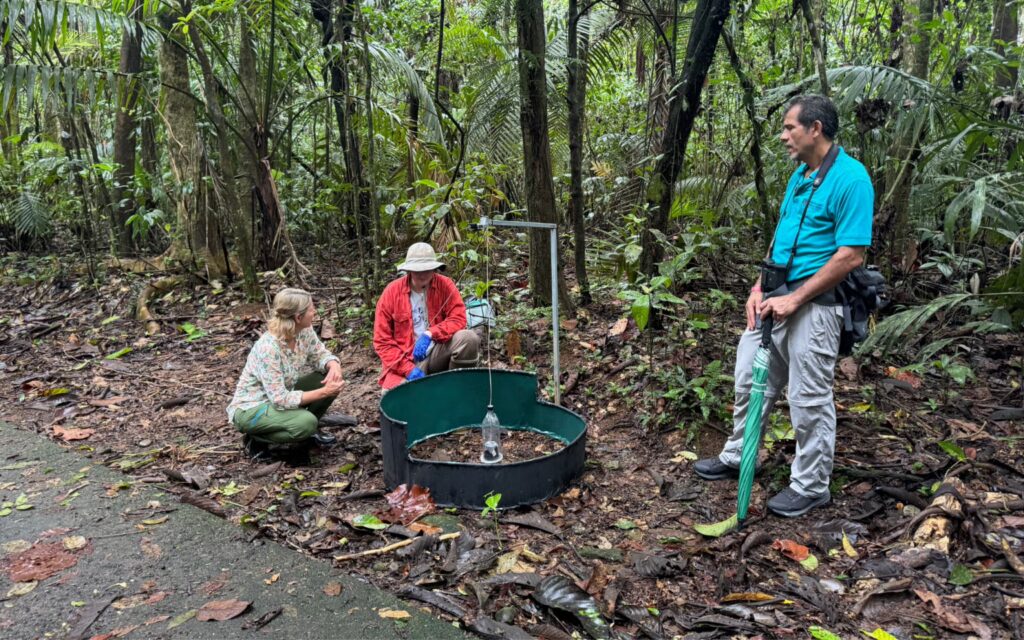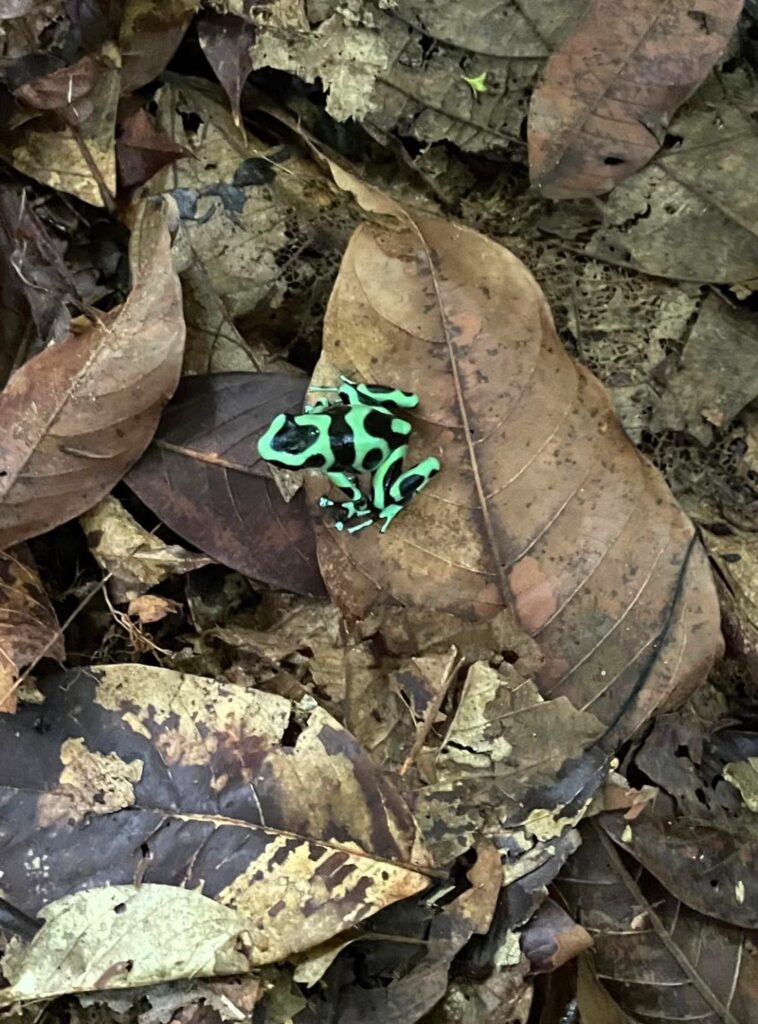Burmeister Lab researchers are bringing frog science to a global audience through PBS’ Emmy Award-winning travel show, Samantha Brown’s Places to Love.

Tab Henry and Claire Pringle’s summer plans included furthering their research on poison frogs in the forests of La Selva, Costa Rica.
What they did not expect was to be featured in an Emmy Award-winning travel show, Samantha Brown’s Places to Love, on PBS.
“It was nice to communicate to a broader population that maybe knows nothing about frogs, Costa Rica, or the important role that the frogs play in our environment,” said Henry, a second-year Ph.D. student in biology, who conducted research in Costa Rica last summer. “And we had an opportunity to show how cool frogs are.”
Henry fondly remembers watching Samantha Brown explore the world on television as a child, so appearing on her show was a full circle moment.
Pringle described the interview as nerve-wracking but exciting. The duo enjoyed working with Brown and her crew, who showed great interest in the frogs and their research.
Poison frogs are among the most toxic species, but what people may remember them for is their bright colors — yellows, oranges, reds, greens and blues. They thrive in the rain forests of Central and South America.
Both Henry and Pringle worked for two years in the Burmeister Lab, led by UNC-Chapel Hill biology professor Sabrina Burmeister, before pursuing global research at the Organization for Tropical Studies —a nonprofit with a 60-year mission to sustain tropical ecosystems. The TV crew filmed at OTS, which is located in La Selva.
“It was hands down the best experience I’ve had at Carolina — it was life changing,” said Pringle, who is a Burch Fellow and a neuroscience major. “It was incredible.”
The Burch Fellowship, housed within Honors Carolina, offers students funding to pursue an interest they are passionate about, no matter the location. The Organization for Tropical Studies offered the opportunity to see the green-and-black poison frogs —which the Burmeister Lab studies —in their natural habitat.
Henry and Pringle were the first students to conduct research on wild poison frogs for the Burmeister Lab, trailblazing the way for future experiments beyond Carolina’s borders.

Henry’s research explores spatial cognition and the mental processes that poison frogs use for navigation. Green-and-black poison frogs exhibit unique parental care behaviors, with males transporting tadpoles up to 400 meters to a water source.
His work examines how this ability develops in juvenile frogs, a phase of development he said is overlooked in scientific literature.
Pringle’s research focuses on frog memory and the learning associated with visual cues that are crucial to retracing steps, a skill that is necessary to transport frog eggs to a pool of water for hatching.
“It’s really interesting because when people hear ‘poison frogs,’ they assume we’re interested in the toxins they produce, but we are really focused on studying the cognitive abilities that allow their unique parental care,” she added.
The pair reflected on the challenges they experienced in the rainforest, ranging from developing experiments with limited materials to abandoning metal field equipment in the middle of a thunderstorm.
“I grew as a scientist for sure. I learned how to problem-solve,” said Pringle.
A typical day in the field varied for both researchers, as they conducted lab work on some days and field work on others.
While staying on site in cabanas, both students recalled waking up to the sound of Howler monkeys at 5 a.m. and often spotting sloths leisurely crossing the breathtaking Sarapiquí River before breakfast.
They fondly look back on the relationships they built with the people they met in Costa Rica, many of whom they remain in contact with.
“They say, ‘Tropical friends are life friends,’” said Henry.
Pringle is currently writing her senior thesis about her research and will present her findings at the department of psychology and neuroscience Honors Poster Session and the Celebration of Undergraduate Research at the end of the spring semester.
Henry plans to continue his research on frogs for the next few years.
“I’m grateful that we had the resources here at Carolina to be able to send me to Costa Rica,” he said.
Originally by Sophia Melin, College of Arts and Sciences
Watch the PBS Samantha Brown’s Places to Love episode featuring Tab Henry and Claire Pringle.


